Lima, Peru,
South America
papaya
powdery mildew
orange
white fly
earthworms
“Since I began with the practice of Agnihotra, I have seen that my plants become stronger and that they fructify better.”
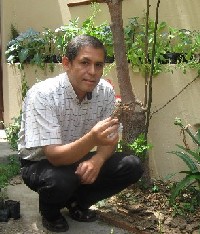 “I have two gardens of a total area of approximately 30 square meters. Accidentally I applied Agnihotra ash on a sunflower plant and I observed the following day a positive strong effect and so I began to apply the ash to other plants and gradually increased its use until applying it almost daily. Maybe it is not necessary to apply it so frequently.”
“I have two gardens of a total area of approximately 30 square meters. Accidentally I applied Agnihotra ash on a sunflower plant and I observed the following day a positive strong effect and so I began to apply the ash to other plants and gradually increased its use until applying it almost daily. Maybe it is not necessary to apply it so frequently.”
“By combining the Agnihotra and its ash with my organic agriculture practices, I have found very good results and a visible improvement of the plants.”
“A very interesting example is the case of powdery mildew that attacks the papaya trees in Lima, due to the humidity and environmental contamination. I was trying hard to save some of my papaya plants from the powdery mildew that had attacked them. I applied horse tail extract, Neem extract and Chamomile. I also applied sulphur and lime powder, but I was not able to always eliminate this disease. The plants went from bad to worse and many died. So, one day I threw some Agnihotra ash on the two plants that were still alive but in a very bad state, actually ready to die. They healed in less than one week. They healed completely. This is very difficult because of the climate in Lima and the season of the year. Now, the plants are growing with lots of vigour. The Agnihotra ash has eradicated the powdery mildew completely from these papaya plants and also from the Cedar plant. This has surprised me very much.”
|
|
|
|
Cedar and Papaya plants healed completely from powdery mildew with Homa Therapy
|
The little orange tree recovered quickly from the ‘sooty bark’ when treated with Homa Therapy
|
“I have a little orange tree that was attacked by the white fly, which produces ‘sooty bark.’ This also introduces a virus that makes the leaves pale. Before I had applied various organic insecticides, but without achieving good result. Every time I stopped the application, the infestation proliferated again. Now, I have applied powdered Agnihotra ash daily and the white fly has almost disappeared (only 5% is left). And this has happened during summer time, which is the most difficult season to control the plagues and it happened just in a few weeks of applying Homa Therapy. Due to my daily practice of Agnihotra, the plants are sprouting and produce many new buds. When I did the Agnihotra fire right next to the plant and left the pyramid there during the day, the orange tree recovered quickly, showing more vigour and this was a pleasant surprise.”
“In a yellow pepper plant, the effect of Agnihotra was also very noticeable. Agnihotra was done near her, and she filled herself with fruits. Only once in a while she gave some few fruits. Now she is loaded; she has 13 fruits and she looks very beautiful.”
“I have Payco (native plant of Peru) that has surprised me how it has grown. This growth coincided with the beginning of the practice of Agnihotra in my house. Usually, these plants do not grow so much. This plant is also used to prepare a green soup and to eliminate intestinal parasites and it also has a very pleasant aroma.”
“I have a ‘slipper gourd’ plant and its fruits were attacked by a plague when they were still tiny and they dried up. When I began to apply the Agnihotra ash, the plant healed 100%. She had an abundant production of fruits, even though it was out of season.”
|
|
|
|
The ‘slipper gourd’ had an infestation and the fruit dried up before it could ripen.
|
Healthy and abundant ‘slipper gourd’ fruits with Homa Therapy
|
“I have also noticed that my organic vegetable garden is attracting the little birds. Like we know in organic agriculture, these are the controllers of insects and plagues. So I have noticed that the little birds are eating the lice and worms off the plant with more efficiency than before. Before, I took off the worms manually from the broccoli, but now I leave them there, because they are food for the little birds, which come every day. My bio-garden is a special place. The little birds sing more than ever before. Since I began with Agnihotra, their song has become more beautiful. It seems to be a choir of birds. Before they sang early in the morning or at dusk, but now they sing very strong in any given moment.”
“The Geranium plants have increased their quantity of flowers. I also have many ornamental plants like roses, which have produced a much bigger quantity of flowers; it seems to be a vase of roses with a very special fragrance. Another plant is the “Alyssum” or “Virgin’s Mantel”, a species that attracts beneficial insects. Also the yellow ivy and many other ornamental plants are benefitting from the practice of Homa Therapy.”
|
|
|
|
I also have a fruit-bearing native species of Peru, called “Capulí” or “Water Blanket”, which has increased its fructification and was healed of a virosis in the leaves, soon after beginning Agnihotra in my house.
|
A home made Homa earthworm bed, something that could inspire us to copy. This way we always have good soil for plants.
|
“I have had several earthworm beds for several years, where I produce vermicompost. By applying Agnihotra ash to the earthworm beds, the first very obvious effect I noticed was that the process of the decomposition of the organic material is much faster. This vermicompost now has a very pleasant fragrance. The earthworms have also slightly increased their size and their reproductive apparatus is anatomically better developed.”
“Recently I started applying the Agnihotra ash solution and I have already been able to observe its repellent effect on the cockroaches that are in my biogarden. Before it was very difficult to control them, since there are many hiding places for them.”


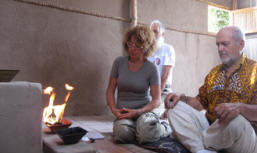
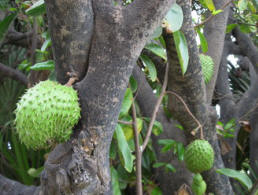
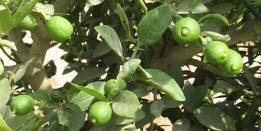
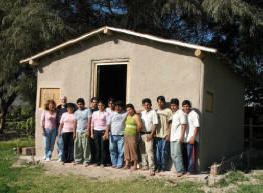
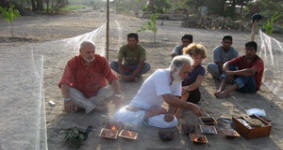
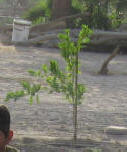
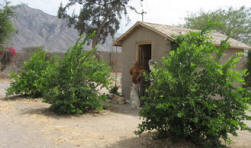
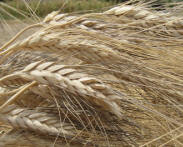
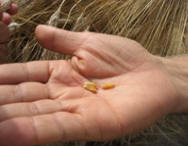
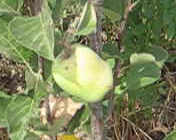

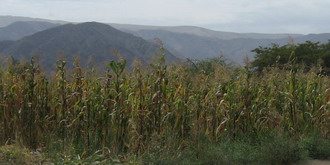

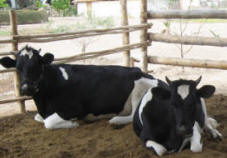
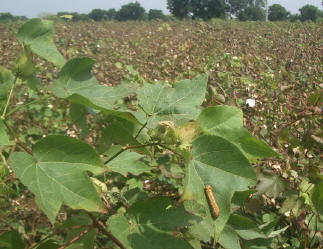
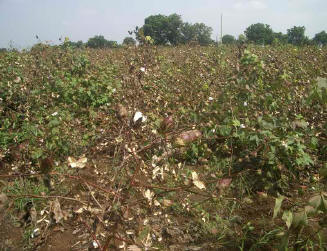
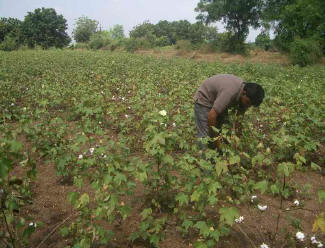
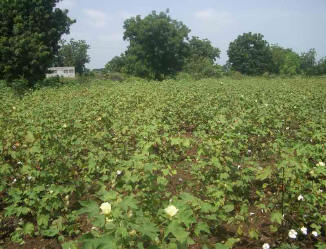
 “I have two gardens of a total area of approximately 30 square meters. Accidentally I applied Agnihotra ash on a sunflower plant and I observed the following day a positive strong effect and so I began to apply the ash to other plants and gradually increased its use until applying it almost daily. Maybe it is not necessary to apply it so frequently.”
“I have two gardens of a total area of approximately 30 square meters. Accidentally I applied Agnihotra ash on a sunflower plant and I observed the following day a positive strong effect and so I began to apply the ash to other plants and gradually increased its use until applying it almost daily. Maybe it is not necessary to apply it so frequently.”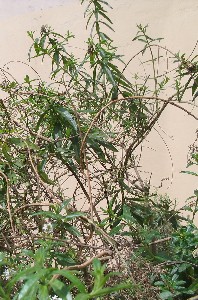
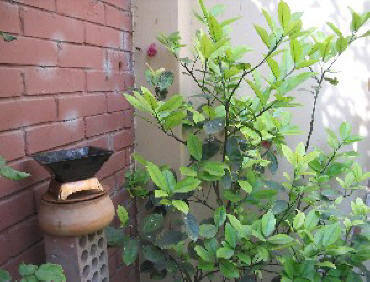
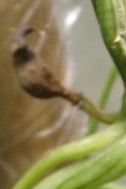
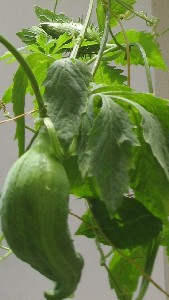
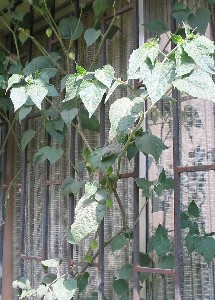
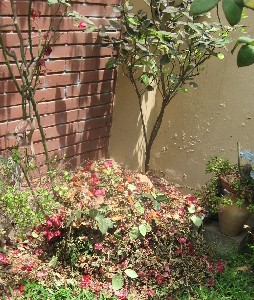
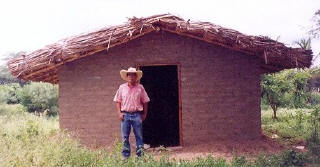 “We continue progressing with the Homa Therapy on our farm with good results. The mango variety ‘Kent’ flowered late but it did flower and this is the reason that the harvest will be late, but with a very good projection.”
“We continue progressing with the Homa Therapy on our farm with good results. The mango variety ‘Kent’ flowered late but it did flower and this is the reason that the harvest will be late, but with a very good projection.”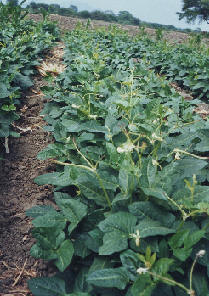 “From the time I started these evaluations, I did them with a scientific approach.
“From the time I started these evaluations, I did them with a scientific approach.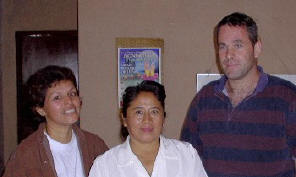
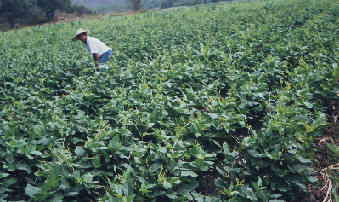
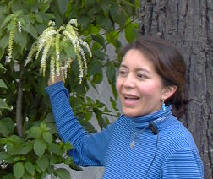
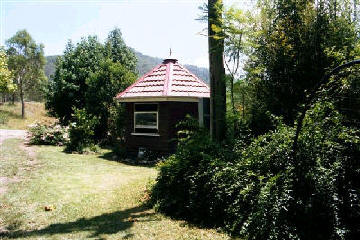 When we purchased the land in 1994,it was in drought and the only source of water was harvested rainwater held in concrete tanks. With ongoing drought, we had to resort to recycling our water. The bath water washed the clothes and the dishwashing and clothes washing water watered the non-food trees and plants. One day, a water diviner turned up and after thoroughly dowsing the land, he told us there were no underground streams to speak of. However, we had a bore well drilled, despite the prognosis of the diviner.
When we purchased the land in 1994,it was in drought and the only source of water was harvested rainwater held in concrete tanks. With ongoing drought, we had to resort to recycling our water. The bath water washed the clothes and the dishwashing and clothes washing water watered the non-food trees and plants. One day, a water diviner turned up and after thoroughly dowsing the land, he told us there were no underground streams to speak of. However, we had a bore well drilled, despite the prognosis of the diviner.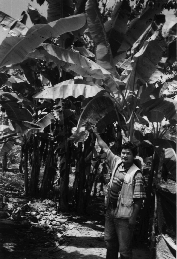 A letter from the banana farmers of Nueva Requena to Dr Elsa Carbonell, Ministry of Agriculture, Region: Ucayali
A letter from the banana farmers of Nueva Requena to Dr Elsa Carbonell, Ministry of Agriculture, Region: Ucayali